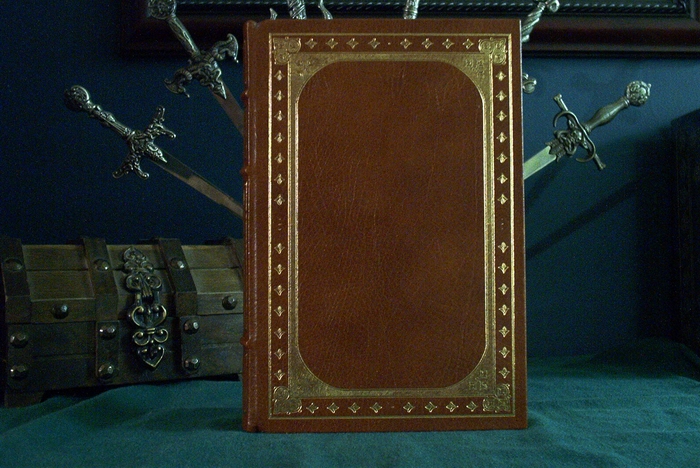Easton Press Plutarch books
The Lives of the Noble Grecians and Romans - The Collector's Library of Famous Editions (2 volume set) - 1969Plutarch Lives - Harvard Classics - 1993
Franklin Library Plutarch books
The Lives of the Noble Grecians and Romans - The Great Books of the Western World - 4 volumes 1979, 1980, 1981
Twelve Illustrious lives - 100 Greatest Books of All Time - 1981
Franklin Library Plutarch books
The Lives of the Noble Grecians and Romans - The Great Books of the Western World - 4 volumes 1979, 1980, 1981Twelve Illustrious lives - 100 Greatest Books of All Time - 1981
Plutarch biography
Plutarch, born around 46 AD in the ancient Greek town of Chaeronea, Boeotia, emerged as one of antiquity's most celebrated biographers and philosophers. His life traversed the tumultuous period of the Roman Empire, witnessing the transition from the Julio-Claudian dynasty to the Flavian era. Hailing from an affluent family of considerable standing, Plutarch received an extensive education, immersing himself in the rich intellectual and cultural milieu of his time. He studied philosophy under the tutelage of prominent teachers, absorbing the teachings of Plato and Aristotle, as well as the Stoics and Epicureans, fostering a deep-seated passion for ethical inquiry and moral philosophy. Plutarch's life unfolded against the backdrop of Roman dominance over Greece, a period marked by political upheavals and cultural amalgamation. It was in this context that Plutarch embarked on his literary endeavors, producing a diverse corpus of works that encompassed biography, philosophy, history, and oratory.His magnum opus, Parallel Lives, remains his most enduring legacy. Comprising a series of biographical sketches of notable Greek and Roman figures, such as Alexander the Great, Julius Caesar, and Alexander the Great, the work juxtaposed the lives of individuals from different cultures and epochs, drawing insightful parallels and elucidating universal truths about human nature and character.
Beyond his literary achievements, Plutarch also engaged actively in public life, serving as a priest at the Oracle of Delphi and later holding various municipal offices in his hometown of Chaeronea. His involvement in civic affairs provided him with firsthand experience of governance and enriched his understanding of political dynamics, which found expression in his writings on statesmanship and governance. Plutarch's philosophical outlook was profoundly influenced by the concept of virtue ethics, emphasizing the cultivation of moral excellence and the pursuit of eudaimonia, or human flourishing. Central to his ethical philosophy was the notion of "practical ethics," which underscored the application of moral principles in everyday life, guiding individuals in their quest for ethical living and personal fulfillment.
In addition to his philosophical treatises and biographical works, Plutarch also wrote numerous essays on a wide range of subjects, including history, religion, and literature. His eclectic interests and erudition earned him admiration and respect among his contemporaries, cementing his reputation as one of the preeminent intellectuals of his time. Plutarch's enduring influence extended far beyond the ancient world, leaving an indelible mark on subsequent generations of thinkers, writers, and statesmen. His works served as a source of inspiration for Renaissance humanists, Enlightenment philosophers, and modern scholars alike, testifying to the timeless relevance of his ideas and insights into the human condition.
Plutarch passed away around 120 AD, leaving behind a literary legacy that continues to captivate and inspire readers to this day. His profound understanding of human nature, coupled with his unwavering commitment to moral integrity and intellectual inquiry, ensures his enduring place in the annals of Western thought and culture.


Comments
Post a Comment
Share your best book review and recommendation